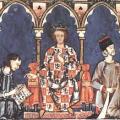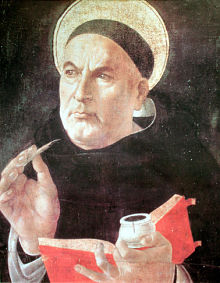245. What Comes Naturally: Ethics in Albert and Aquinas
Natural and supernatural virtue and happiness in Thomas Aquinas and his teacher, Albert the Great.
Themes:
• E.M. Atkins and T. Williams (eds and trans), Aquinas: Disputed Questions on the Virtues (Cambridge: 2005).
• J.A. Osterle (trans.), Thomas Aquinas: Treatise on Happiness (Notre Dame: 1964).
• A. Celano, “The Concept of Worldly Beatitude in the Writings of Thomas Aquinas,” Journal of the History of Philosophy 25 (1987), 215-26.
• S.B. Cunningham, Reclaiming Moral Agency: The Moral Philosophy of Albert the Great (Washington DC: 2008).
• T. Hoffmann, J. Müller, and M. Perkams (eds), Aquinas and the Nicomachean Ethics (Cambridge: 2013).
• J. Marenbon, Pagans and Philosophers: the Problem of Paganism from Augustine to Leibniz (Princeton: 2015),
• R. Konyndyk DeYoung, C. McCluskey and C. Van Dyke, Aquinas’s Ethics: Metaphysical Foundations, Moral Theory, and Theological Context (Notre Dame: 2009).
• MacDonald, Scott, and Stump, Eleonore (eds.), Aquinas’s Moral Theory: Essays in Honor of Norman Kretzmann (Ithaca: 1998)
• R. McInerny, Ethica Thomistica: The Moral Philosophy of Thomas Aquinas (Washington DC: 1997).
• S. Pope (ed.), The Ethics of Aquinas (Washington DC: 2002).
Stanford Encyclopedia: Aquinas' Moral and Political Philosophy







Comments
Add new comment